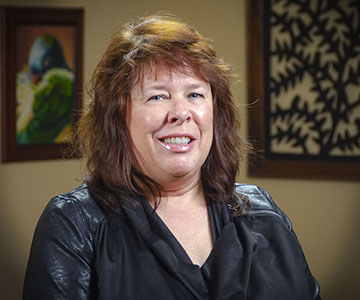February 2021 Featured Educator: Nicole Maier Reitz

Unity. It’s a single word that elicits powerful messages of hope, strength and togetherness. As the nation’s leaders call on families, neighbors and communities to unite, many know that educators across the country have already been hard at work at this.
Nicole Maier Reitz, this month’s Featured Educator, is always working to forge bonds with her students and families, something she does through shared experience.
“My students know that I am a language learner. I learned Spanish and Portuguese the same way they are learning English,” Nicole said. “I, too, lived in another country and had to learn not only Spanish, but Gallego – a language that I had never heard before.”
When Nicole speaks with students’ families, it’s in their home language. No one judges anyone else’s language abilities, helping everyone to know that it’s okay to make mistakes.
Nicole grew up in a bilingual community in Colorado and started learning Spanish in middle school to communicate with the people in her community. To hone her skills, she volunteered in bilingual settings and studied Spanish in college. Ultimately, she earned a Ph.D. in Spanish linguistics.
After she finished her Ph.D., Nicole spent time teaching at the university level, until she was offered an opportunity to return home to Colorado and teach at a K-12 school.
“What I like most about teaching is being able to share and learn about different cultures in addition to helping students in my community realize their full potential through educational opportunities,” Nicole said.
Today, Nicole is a Title 1/English Language Learner (ELL) Coordinator in Park County School District #1 in Powell, Wyoming. This is her sixth year in this position and her 24th year teaching.
“Our district is located in the northwestern part of Wyoming, bordered by Montana in the north and Yellowstone Park to the west,” Nicole said. “Agriculture is a key industry of Powell with sugar beets, barley and pinto beans. And the ELL population consists mainly of children from the workers on the various farms. Most of our ELL students speak Spanish at home.”
Making sure families are involved in their student’s education is important to Nicole and her team of five ELL paraprofessionals.
“Parents know that they can call or text me or my team for explanations of homework assignments or for directions on what they need to do to assist in the learning process,” she said.
She’s even designated space in her office as a Spanish library that she encourages her students and their families to use.
“I found that the families in our area had a very limited number of books in their native languages, so I wrote grants and was able to begin the process of starting a library with Spanish and bilingual English/Spanish books for ages pre-K to adult,” Nicole said.
At the heart of everything, Nicole is bringing people together – making sure they have a shared understanding of the student and their educational experience.
"I use the Can Do Descriptors as a positive way to explain to teachers where their students are in each domain,” Nicole said. “This helps them to understand why a student may be able to speak fluently but has difficulty in writing.”
She distributes student work to colleagues and families through her newsletter project.
“The students take pictures and write about a given topic each month. We then print out our newsletter and give it to classroom teachers,” Nicole said. “This helps teachers and staff understand the students through their perspective. We also send home the newsletter with the student to read with their family. Since many parents do not speak English, the students explain the articles to their families in their home language.”
During the pandemic, Nicole continues to emphasize this power of shared experience and understanding. When her students encounter an unfamiliar topic in another class, she uses virtual reality (VR) headsets as a way to experience something new. Recently, a VR headset helped a student take a ride on a rollercoaster and enjoy what the thrill and suspense of such an experience would feel like.
“This allows the student to have a connection with the topic and to experience emotions and feelings, without being worried about expressing these thoughts in English,” Nicole said. “Once they have an experience upon which to build, we work on vocabulary and ways to express their thoughts. This gives the ELL student power to express their thoughts and enables them to be part of the class.”





